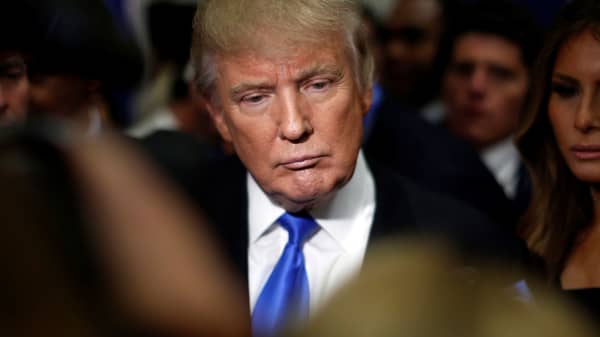Reducing his personal tax bill does absolutely nothing for any business he may be running, public or private, and more than likely the losses he generated to reduce his personal tax liability very likely came at THE EXPENSE of shareholders, bondholders, employees and vendors.
Judging from the trajectory of the Plaza Hotel, his casino and hotel businesses, his steak, vodka and University enterprises, neither his investors, vendors, nor customers shared in his "good fortune."
Indeed, they almost all lost money, even as he was finding ways to make money by losing money.
That, dear readers, is the exact opposite of fiduciary responsibility. We can re-name it, pecuniary responsibility, putting one's individual financial needs ahead of the constituents served.
There is no genius involved in using business losses to reduce one's personal tax bill.
However, it does take a special kind of genius to LOSE a billion dollars and claim one is a business success.
Multiple bankruptcies, billion dollar losses, alleged misdirection of income to charitable foundations and, published reports suggesting potential further abuses of the tax code, are not the characteristics normally ascribed to a great business builder.
While it's true that the deductions taken by Mr. Trump are legal under the code, you rarely hear names like Gates, Jobs, Buffett, Bezos, or other builders of great companies, and great wealth, using business losses to reduce their personal tax bills.
They also enriched their investors and employees as they, themselves, got fabulously wealthy. Not so, Trump.
True, most wealthy people have an army of accountants, tax attorneys, estate planners and other specialists working around the clock to limit their liability, however, it is unusual, at best, to co-mingle business losses with personal income.
Again, that gets to the core of fiduciary responsibility. A great business-builder does everything to maximize the value of the enterprise he, or she, runs even if he/she also takes steps to limit personal tax payments.
Those efforts are mutually exclusive.
And there is another question that has thus far been left unanswered with respect to Mr. Trump's taxes. If, as has been reported, Trump's $916 million dollars in debt was forgiven, why hasn't the IRS billed him for the imputed income associated with debt forgiveness?
It is customary to count forgiven debt as "imputed income" which would then be taxed as ordinary income.
The total tax liability, federal and state income tax, would run north of 40 percent of that number, close to $400 million! Mr. Trump should have a yuuuuge tax bill hanging over his head, not a billion dollar offset to income.
There may be much more to learn about Donald Trump's taxes. But there is very little left to learn about Donald Trump's alleged business genius.
Donald Trump makes money for one constituent and one constituent alone. And that constituent is Donald J. Trump.
Trump has boasted, during his campaign, that he may be the first presidential candidate to run for office and make money doing so. Once again, his interests may not be our interests. They appear to be solely his own.





